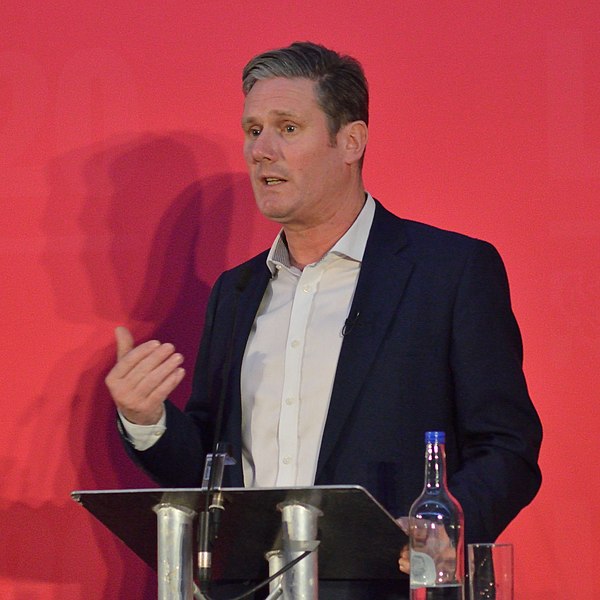
Labour is making a significant turnaround by abandoning its commitment to spend £28 billion annually on its green investment plan.
An official announcement is scheduled for Thursday.
Sources assert that the party's Green Prosperity Plan, which includes the establishment of a publicly-owned green power company, will not be completely discarded.
However, Labour will no longer promise to invest £28 billion per year in green energy projects if it succeeds in the next election.
Labour's stance on the policy has become increasingly unclear in recent weeks, with some senior figures consistently avoiding the £28 billion figure during interviews, while others, including party leader Sir Keir Starmer, continued to endorse it.
It is anticipated that Labour will argue that they need to prioritize being perceived as responsible stewards of the economy, rather than committing to a spending pledge deemed reckless by opponents.
This decision coincides with the EU's climate change service announcing that global warming has surpassed 1.5°C for the first time in a full year.
Labour's plan to allocate £28 billion annually to green energy projects, such as offshore wind farms and the development of electric vehicles, was initially unveiled by shadow chancellor Rachel Reeves in September 2021.
Last June, that commitment was watered down, with the £28 billion target adjusted so that a Labour government would achieve it roughly halfway through its first term, rather than in the first year.
At the time, Reeves stated that given the challenging economic conditions and rising borrowing costs, the party needed to exercise fiscal responsibility.
Since then, there have been increasing doubts about the feasibility of the policy in its current form.
In a recent interview, Sir Keir described the £28 billion figure as "a bold ambition," contingent upon the party's fiscal rules, which stipulate that debt must decrease as a proportion of the economy within five years.
However, unlike some of his shadow ministers, he continued to reference the figure as recently as Tuesday.
The prime minister has consistently criticized Sir Keir over the policy, suggesting that it will necessitate higher taxes.
Privately, Labour figures acknowledge a longstanding "brand weakness" in terms of economic credibility, prompting the decision to prioritize efforts to reassure voters about their economic competence over maintaining the £28 billion promise.
This move has drawn criticism from left-wing groups such as Momentum and Unite, Labour's largest union backer.
Momentum's spokesperson described the latest reversal by Starmer as "another surrender to right-wing interests," highlighting a growing disparity between the severity of the economic and environmental crises and the solutions offered by a Labour leadership perceived as timid.
Unite leader Sharon Graham emphasized the need for the Labour movement to counter the Conservatives' accusations of fiscal irresponsibility, stressing the urgent need for investment in Britain's economic infrastructure.
Labour MP and former shadow environment secretary Barry Gardiner characterized the decision as "economically illiterate, environmentally irresponsible, and politically immature," cautioning against sacrificing substantive policy for the sake of avoiding opposition attacks.
Carla Denyer, co-leader of the Green Party, criticized the move as a significant setback for climate action, economic growth, and job creation, emphasizing the necessity of large-scale investment in transitioning to a green economy.
Laura Trott, Chief Secretary to the Treasury, labeled Labour's decision as a serious moment that confirms their lack of a coherent plan for the UK, generating uncertainty for businesses and the economy.
This development coincides with the Conservatives' claim, based on Treasury analysis, that Labour's plan to insulate homes would cost double what Labour had estimated. Labour has dismissed this analysis as "bogus."
Sir Keir had set a deadline of Thursday to finalize his party's draft general election manifesto, signaling a pivotal moment in Labour's electoral strategy amidst ongoing debates over its green investment policy. Photo by Rwendland, Wikimedia commons.


































